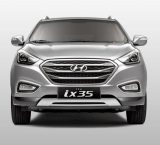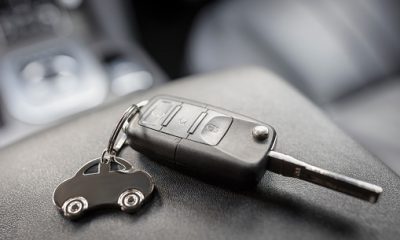
Change in the insurance market accompanies digital technology
Follow Us @
Change in the insurance market accompanies digital technology
-Receive alerts for the main trending insurance news today, car insurance updates, types of insurance, latest insurance opportunities and lots more! Enjoy your stay!!
New digital technologies for public transport and accommodation are forcing companies in the insurance sector to create coverage that meets a new user profile.
Currently, private cars are being used to transport passengers, through applications. Likewise, in the innovative accommodation sector, the Airbnb app also demands creative responses from insurers. From the moment a house, which was previously restricted to family use, now receives strangers, specific theft coverage is necessary.
A new office model, the home office, also challenges the insurance sector, by placing expensive equipment, such as computers, tablets and smartphones in a residential environment, which needs coverage for eventualities such as fires. In this case, the insurance company replaces any loss that may occur.
Insurers are expanding and adapting their coverage to this new reality, which requires diversification of their products, offering services that can meet the demands of new technologies offered by applications.

Image: Getty
Those looking for new types of insurance
New insurance coverage for home office are being sought after by engineers, photographers, architects, lawyers, consultants and accountants. The insurance value varies according to the insured objects that are in the property.
Houses that eventually function as hotels also have specific insurance. Tokio Marine, for example, since 2017, has been including in its products those intended to cover residences that are made available to receive guests, through the Airbnb platform. As the insurer informs, this is the most expensive and complete modality, the price is equivalent to 50% more than insurance for a residence that is not temporarily rented and which has lower compensation, with lower risk, since the uses are different.
When an insured residence becomes part of the registration of this type of accommodation platform, the insurance company must be notified. This is so that there is no change in the nature of the occupation, without the knowledge of the insurance company, says Danilo Silveira, representative of the Mass Property Risk Commission of FenSeg (National Federation of General Insurance).
In Brazil, Airbnb includes a “host guarantee” to cover damage to the property. If the user wants to insure furniture or valuable objects against robbery or theft, they can take out insurance.
Insurance for transport vehicles via digital platforms
In the area of public transport on digital platforms, it is common not to notify the insurer about a change in the type of vehicle use. App drivers generally do not change the policy, only doing so in 10% of cases. The rest continue to have insurance as if the car were private with use restricted to this purpose. This happens because the price difference is very large, and could be double if the use of a passenger car is changed to a commercial one.
However, if there is an accident with the car and it is insured as a passenger car, the insurance company may refuse to pay compensation, which puts the car owner in a very risky situation. The value increases because the vehicle is much more at risk for theft, robbery or collisions. The price variation will depend on the region in which the car is located and the age of the driver and in some cases it can even triple in value.
A private car, which starts to be used to transport passengers, can have its insurance value of R$1,200 increase to R$3,000. This in cash, if paid in installments, the final price will be even higher. But the risk of driving in traffic all day makes owners purchase insurance.
Driver apps have changed the insurance landscape
The number of drivers working with applications such as Uber, Cabify and 99 grew extraordinarily in Brazil, and at the end of 2017 this number was 10 times greater than in previous years, with an approximate number of 50 thousand drivers, only on the application Uber. This growth was undeniably driven by the rising unemployment situation in the country.
With this increase in demand, insurers adjusted prices. These are new technologies that challenged the knowledge of insurance companies, which were not adapted to the exponential growth of this modality. According to experts, such as from the Comparaonline agency, for example, in Rio de Janeiro, insurance companies didn't even really bother to offer products suited to the segment. On the contrary, some even refuse app drivers, because the risk of theft is greater than that of a taxi, as they are private cars, often from popular brands whose parts are sought after on the underground market.
Insurance prices for used cars on apps grew 32.2%, on average, in Rio de Janeiro, in the first quarter of 2018, compared to the same period in 2017. Comparaonline arrived at this calculation by analyzing 200 quotes. A car like the Renault Logan had an increase of 54.32%, its coverage rose from R$5,084.81 to R$7,846.99.
Tracking and monitoring alternatives
An alternative for those who cannot pay for the policy has been tracking and monitoring companies. Companies offer a more competitive price if the vehicle also has insurance for theft and theft. Prices are lower because there is no partial coverage or spare car. Monitoring services are mostly sought after by app drivers. The installation fee for a monitoring device is R$299, plus R$193 per month (in June/2018). This quote considers the profile of a man, aged 30, who lives in a house with a garage in the east zone of São Paulo.
There are cases of drivers who cannot find insurance that fits their budget. When the driver informs that he provides passenger transport services, complications begin. The value skyrockets, as in the case of the Uber driver, Luiz Augusto Machado, 41 years old, who had his insurance charge increase from R$4,500 to R$8,000, after reporting the use of the car.
Evidently, no matter how hard he works, a ride-hailing driver cannot bear an expense of this size on vehicle insurance. For this reason, many drivers are omitting this information, in order to pay as much as possible. But, if an accident happens while working, the app driver will probably have problems with the insurance company. The issue is that many companies refuse to cover damages if the information has been omitted and the accident occurs while transporting passengers. However, in the case of accidents such as robbery and theft, there will be no distinction between whether the car is being driven or used in an app.
Change in the insurance market accompanies digital technology
Follow AFRILATEST on Google News and receive alerts for the main trending insurance news today, car insurance updates, types of insurance, latest insurance opportunities and lots more!
Change in the insurance market accompanies digital technology
SHARE POST AND EARN REWARDS:
Join our Audience reward campaign and make money reading articles, shares, likes and comment >> Join reward Program
FIRST TIME REACTIONS:
Be the first to leave us a comment – Change in the insurance market accompanies digital technology
, down the comment section. click allow to follow this topic and get firsthand daily updates on Insurance.
JOIN US ON OUR SOCIAL MEDIA: << FACEBOOK >> | << WHATSAPP >> | << TELEGRAM >> | << TWITTER >
Change in the insurance market accompanies digital technology
#Change #insurance #market #accompanies #digital #technology
-
Sports3 months ago
Max Verstappen questions accusation of coup three years ago in the F1 final
-
Football3 months ago
Important player is no longer part of Abel Ferreira's plans
-
Beauty3 months ago
Dr. Victor Gebrim performs rhinoplasty on participant Michelle Heiden, from the reality show “Grande Conquista”
-
Sports3 months ago
Atalanta are defeated by Liverpool, but qualify for the Europa League semi-finals
-
Football3 months ago
On penalties, Olympique beats Benfica with a stellar goalkeeping night
-
Fashion3 months ago
Vogue Arabia cover welcomes Salma Hayek in an interview with Penélope Cruz
-
News3 months ago
Petrobras' executive president denies changes to fuel prices
-
LAW3 months ago
What are some common defenses raised by marine insurance companies?











































